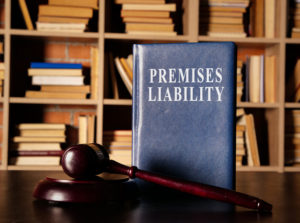How Florida’s Comparative Fault Laws Impact Premises Liability Cases

Premises liability cases are often hotly contested. The Plaintiff will typically claim that the property owner or manager is entirely responsible for any slip and fall that occurs on their premises. The owner or manager, by contrast, will claim that they took reasonable steps to keep the property safe and, if the Plaintiff fell, it was due to their own negligence. While there are certainly incidents that stem solely from the property owner’s negligence, there are others where both sides share some level of responsibility. Fortunately, Florida’s comparative fault laws allow an injury victim to recover damages even if they were partially responsible for the accident. This article will discuss how these comparative fault laws apply to a slip and fall or other premises liability cases.
This article will discuss how Florida’s premises liability laws operate, our state’s comparative fault laws, and why the issue of comparative fault is hotly contested in a slip and fall case. If you or a family member are in need of assistance, contact our office to speak with an attorney.
Understanding Florida’s Premises Liability Laws
All property owners have a duty to take reasonable steps which are meant to keep their property safe for welcome visitors. This includes retail stores, restaurants, malls, etc. It is important to note that the steps taken need only be “reasonable”; the law recognizes that it is not possible for a property owner or manager to keep the premises 100% safe at all times. The determination of whether the measures taken were reasonable will depend on the specifics of the situation and the nature of the property. Steps that may be considered necessary for keeping a store safe, for example, will differ from steps that must be taken to keep a bowling alley safe.
If a property owner fails to take reasonable steps to keep the premises safe, and someone is injured as a result, then the owner may be liable for damages. This is best explained by way of example. Suppose a grocery store “X” requires its clerks to check the aisles for spills every 3 hours. All other grocery chains, however, require that their aisles be checked every hour. X is attempting to save costs by hiring less staff, which means less frequent inspections. A patron slips in a puddle of water and suffers severe injuries. A review of the security footage shows that the spill had happened roughly two hours before the patron slipped. Under this scenario, it would likely be found that store X failed in its duty to keep the property safe. The victim would likely be able to recover damages.
Understanding Florida’s Comparative Fault Law
Florida adopted the “modified” comparative negligence standard in 2023. This standard allows an injury victim to recover damages even if they were partially responsible for the accident. The victim’s damages award will be reduced in proportion to their share of the fault. If, however, the victim was at least fifty-one percent responsible for the accident, they would recover nothing. If the matter goes to trial, then the extent to which each party was at fault will be determined by the jury.
Consider the following example. Joe is walking down the aisle of store X, which, as mentioned above, does not regularly check its aisles for spills. A puddle of water has been on the ground for an unreasonable amount of time. Joe, however, is scrolling through social media feeds on his phone and is not paying attention while walking. This reduces the chance of Joe spotting the dangerous situation before slipping in the puddle. Joe slips and suffers serious injuries to his neck and back. The jury finds that the store was sixty percent responsible for the accident and that Joe bears forty percent of the responsibility as he was not paying attention while walking. The jury also finds that Joe suffered $500,000 in damages. Joe will receive $300,000 ($500k – 40%). If the jury had found that Joe was fifty-one percent, or more, responsible for the accident then he would have recovered nothing.
Comparative Fault Can Be a Hotly Contested Issue in Slip and Fall Cases
Comparative fault is raised by the defense in slip and fall cases possibly more than in any other area of personal injury law. This is due to the fact that the allocation of fault can be highly subjective and people often have differing opinions as to whether the victim should be partially blamed for the accident. The defense can be expected to argue at every turn that the victim was not paying attention while they were walking, that they should have been aware of the dangerous situation, or that they were somehow responsible for their own injuries. Retaining an attorney who is experienced in presenting such matters to a jury can be vital.
There are several steps that counsel will take to ensure that the strongest possible case is made to the jury. These steps can include the retaining of experts who will testify as to the steps that the establishment should have taken to make the premises safe. Other steps can include obtaining security footage, maintenance reports, and other evidence that will be used to prove your case. When you are choosing counsel to handle your case, it is important that you ask them about specific steps that they will take in a case like yours.
Contact a Florida Premises Liability Attorney
If you have been injured on another’s property, you must take immediate steps to protect yourself. The first of these steps is to seek immediate medical attention. The second is to contact an experienced personal injury lawyer. Our firm’s mission is to protect those who have been injured due to another’s negligence. We will give your case the attention it needs and we pride ourselves on providing quality service. Contact us online or by telephone at 800-780-8607 to speak with a Florida slip and fall attorney.
Share This


